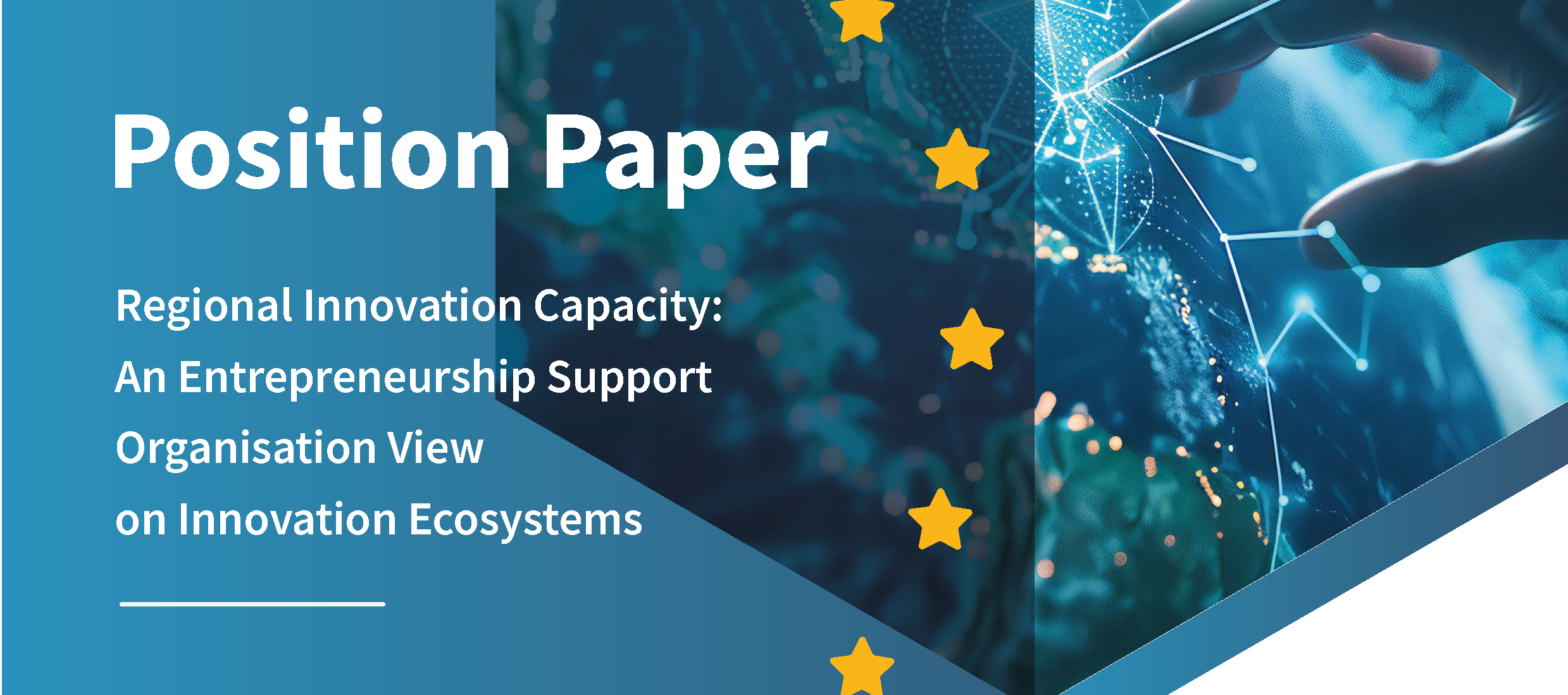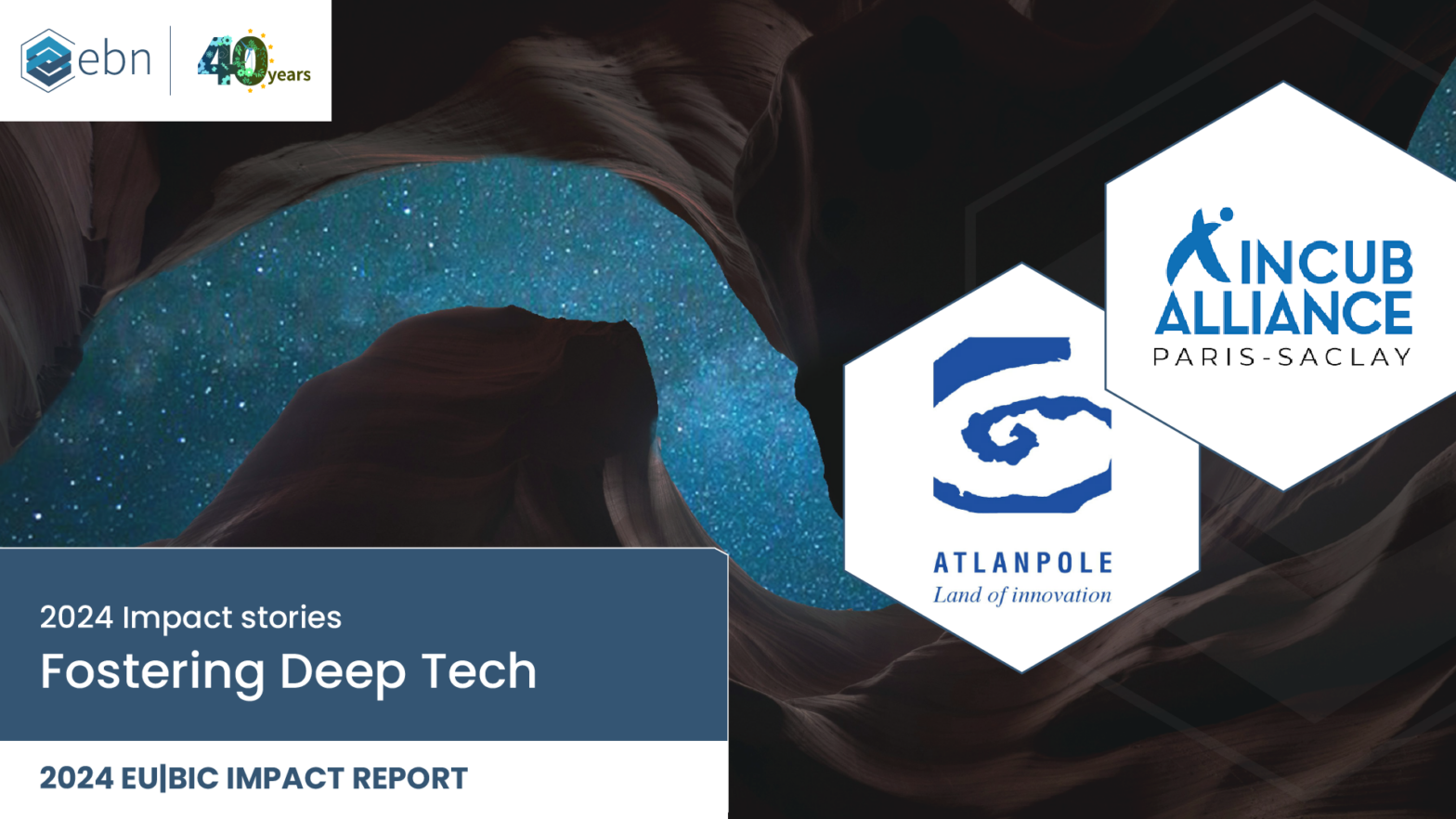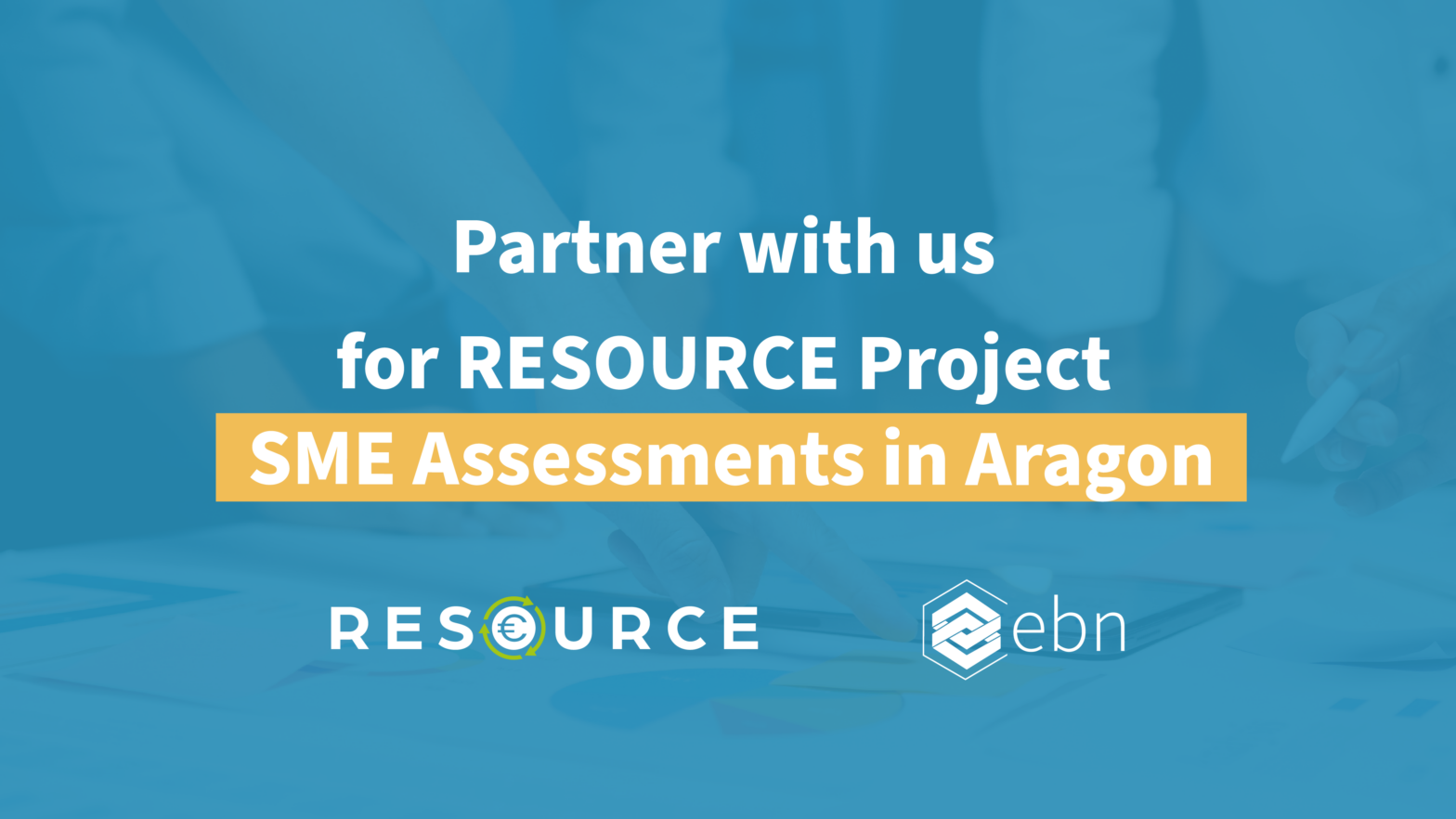EBN Position Paper - Innovation Capacity EU Regions

An Entrepreneurship Support Organisation (ESO) View on European Innovation Ecosystems
Reading time: 3-5 min | Download Paper in .pdf
Today the European Business and Innovation Centre Network (EBN) released a position paper analysing Europe’s regional innovation capacity and the performance of the related innovation policy frameworks. This document provides crucial recommendations for future European Commission work programmes. It evaluates the results of the high-level expert workshop ‘Collaborative Models to Accelerate Europe’s Innovation Capacity’ (Brussels, 26 March 2024), highlighting significant trends and making recommendations to enhance the impact of regional actors on the European (deep-)tech and innovation ecosystems.
Key Findings and Recommendations
A lot of ink has been spilt on ‘’how’’ to drive and implement Regional Innovation System (RIS) and Smart Specialisation Strategy (S3) policies, as well as programmes for large-scale R&D and technology infrastructure investments that support cutting-edge research, innovation projects, and the European Innovation Council (EIC).
Guided by experts and its members, EBN emphasises the ‘’who’’ and ‘’what’’ questions – i.e. which type of organisations should be leveraged to increase innovation capacity, especially in emerging and moderate innovator regions; what forms of collaboration promise and demonstrate the most results and what forms qualify to boost regional growth; and what funding mechanisms should be considered.
1. Place-based innovation requires place-based (impartial) orchestration
As place-based (entrepreneurial) innovation relies on a holistic concept which, while addressing the needs of both supply and the demand sides, focuses on their intersection which is the economy itself, it requires place-based orchestration. Such mediation must acknowledge that innovation is not only technological, but it also relates to business models and behavioural patterns; interactions based on mutual interest and curiosity between the demand and supply parties are the main venues of innovations, as they improve knowledge creation, learning and development processes.
Innovation is a combining process – the biggest breakthroughs do not follow from a single discovery but from the connection of a variety of elements and fields of expertise.
2. Overcoming silos to raise the innovation capacity for the whole
Challenge-based approaches are examples of how actors (parts) can systemically overcome their siloed focus by working together as a whole. However, as we witness the pace of substitution and adoption of new technologies depends on the capacity of the ecosystem to adapt, not on the financial impulse given to either industrial, academic, or private sector actors individually. Overcoming the siloed approaches in current policy approaches between regional, industrial, and technological policies will enable all participating actors to identify innovation that steers profitable transformations. ‘’All is innovation policy in the context of the current wicked, multi-layered challenges’’.
3. Local orchestrators create environments where risk-taking is the norm
Overcoming the ‘innovation paradox’ and developing an interconnected innovation ecosystem demands deep cultural change both within the participating organisations, as well as between them. To promote a transformative process in an ecosystem, the leading player must show commitment to the process to show key actors that they are part of a shared/ample community and are not alone.
ESO/ISOs create environments where risk-taking is the norm rather than the exception. This cultural shift can drive greater creativity and ambition among startups, government, universities, and corporate actors. In adopting these roles, ESO/ISOs effectively coordinate and enhance the capabilities of their ecosystems, leading to greater innovation, faster growth of startups, and more robust economic outcomes.
Recommendations
1. Implement Systemic and Place-Based Innovation Frameworks through ESO/ISO-led Partnerships
The European Business and Innovation Centre community advocates for systemic change and the implementation of place-based innovation frameworks that emphasise collaborative and participatory governance models. The establishment of methods based on the Partnerships for Regional Innovation (PRI) pilot involving entrepreneurship and innovation support organisations (ESO/ISO) in leadership roles is essential.
These partnerships connect a diverse array of innovation actors from both the private and public sectors, promoting a cohesive approach to innovation. Such policies should support the further integration of ESO/ISOs into the governance frameworks of Smart Specialisation Strategies (S3) and other regional innovation initiatives (e.g. I3), ensuring they can effectively contribute to and collaboratively steer regional innovation strategies.
2. Enhance Structural and Financial Support for ESO/ISOs to Build Regional Innovation Capacities
It is critical to develop robust support structures for ESO/ISOs, including dedicated funding, capacity-building programmes, and infrastructural investments. Such support will enable ESO/ISOs to effectively manage and accelerate innovation processes, transforming regional attributes and academic research into commercial successes.
Targeted investment strategies by the European Union will enhance the operational capabilities of these organisations, increasing regional economic development and competitiveness.
3. Empower ESO/ISOs as Catalysts for Open Innovation and Cross-Sector Collaboration
Policymakers at all levels must recognise and empower operating ESO/ISOs as constructive orchestrators within regional innovation ecosystems. These organisations’ core mission is to facilitate ‘’open innovation’’ by integrating diverse knowledge sources and fostering interdisciplinary collaboration across academia, industry, and government.
We should establish supportive policies and strategic frameworks that expand the capacity of ESO/ISOs to drive innovative models and enhance their impact across various sectors.
Acknowledgements
We sincerely thank all the participants who participated in the high-level expert workshop ‘Collaborative Models to Accelerate Europe’s Innovation Capacity’ in Brussels on 26 March 2024.
Especially we extend our gratitude to the representatives of the European Commission:
- Peter Droll (Director of Prosperity at DG Research and Innovation),
- Catherine Wendt (Head of Unit Smart and Sustainable Growth, DG Regional and Urban Policy),
- Mikel Landabaso (Director Fair and Sustainable Economy, Joint Research Centre);
And members of the EU|BIC community:
- Samuel Bachelot (Innovation and Development Advisor, EU|BIC Atlanpole),
- Sebastiaan Berendse (Director of Corporate Value Creation, Wageningen University and Research),
- Diego De Biasio (Director, EU|BIC Technoport; President, EBN),
- Cristina Fanjul (Director, EU|BIC (CEEI) Asturias),
- Bartosz Józefowski (Deputy Director, EU|BIC Krakow Technology Park),
- Pietro De Martino (Manager of Incubation, Acceleration and Innovation, EU|BIC FILSE; Vice-President, EBN),
- Jorge Pimenta (Director Innovation, EU|BIC Instituto Pedro Nunes),
- Emilien Watelet (Director ID2Move, EU|BIC CapInnove),
- and all members of the EU|BIC community that contributed with information on their innovation ecosystem performance.
More information
For more information and reactions, please contact Bram Pauwels (Chief Strategy Officer) via bram.pauwels[@]ebn.eu.

Acknowledgements
A special expression of gratitude goes out to Ms Roberta Metsola, President of the European Parliament (EP) for allowing this event to be hosted under the patronage of the EP.







